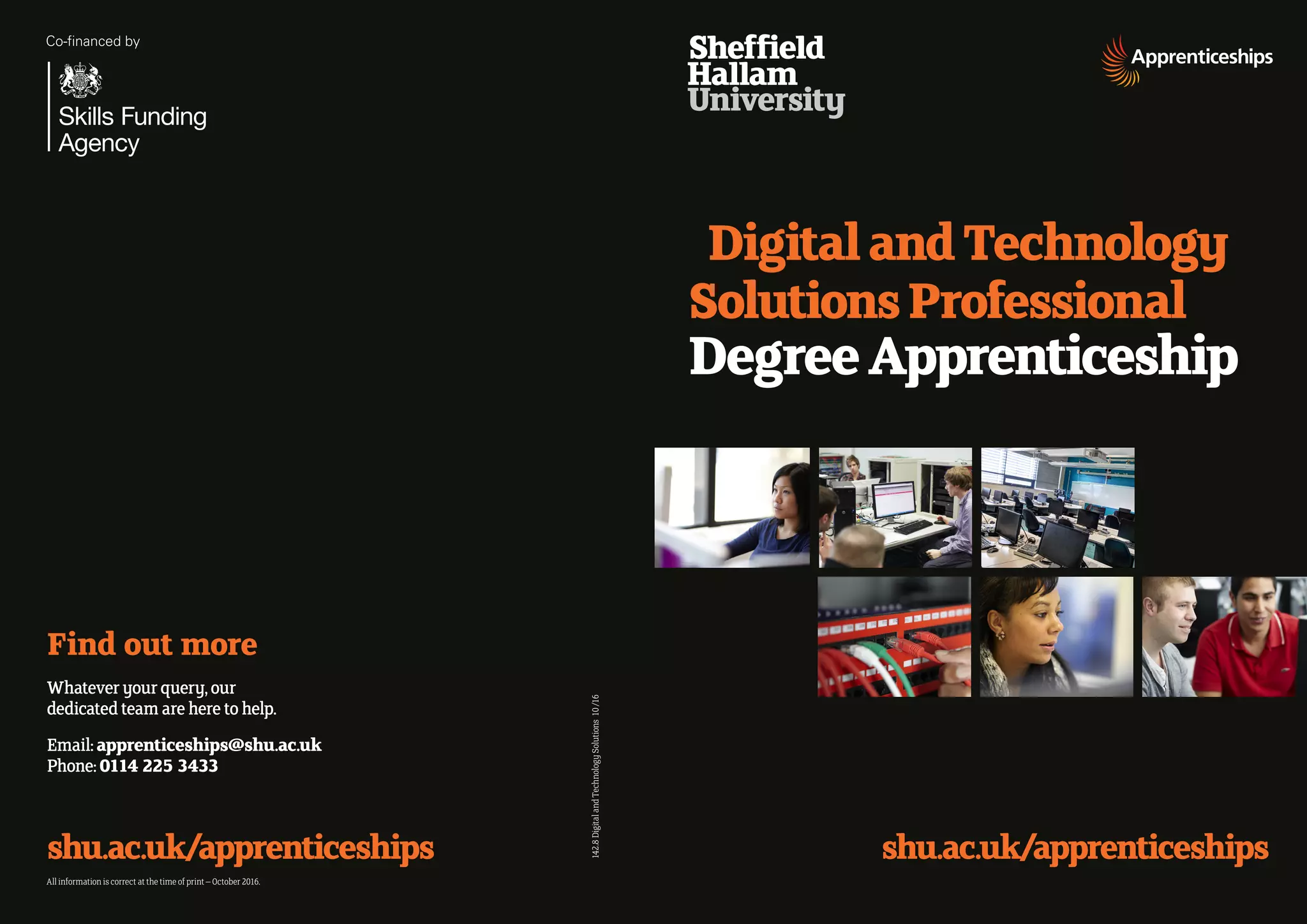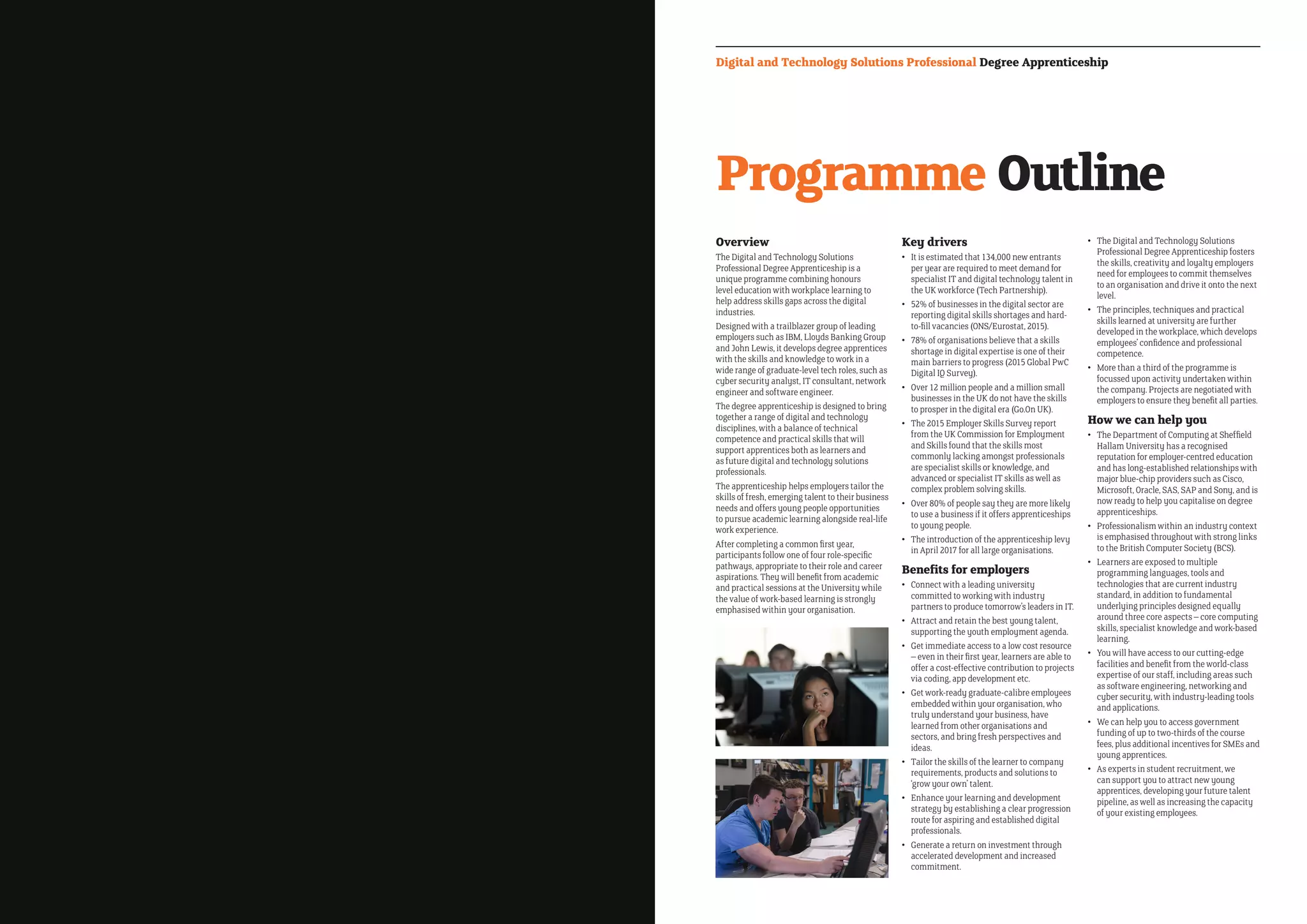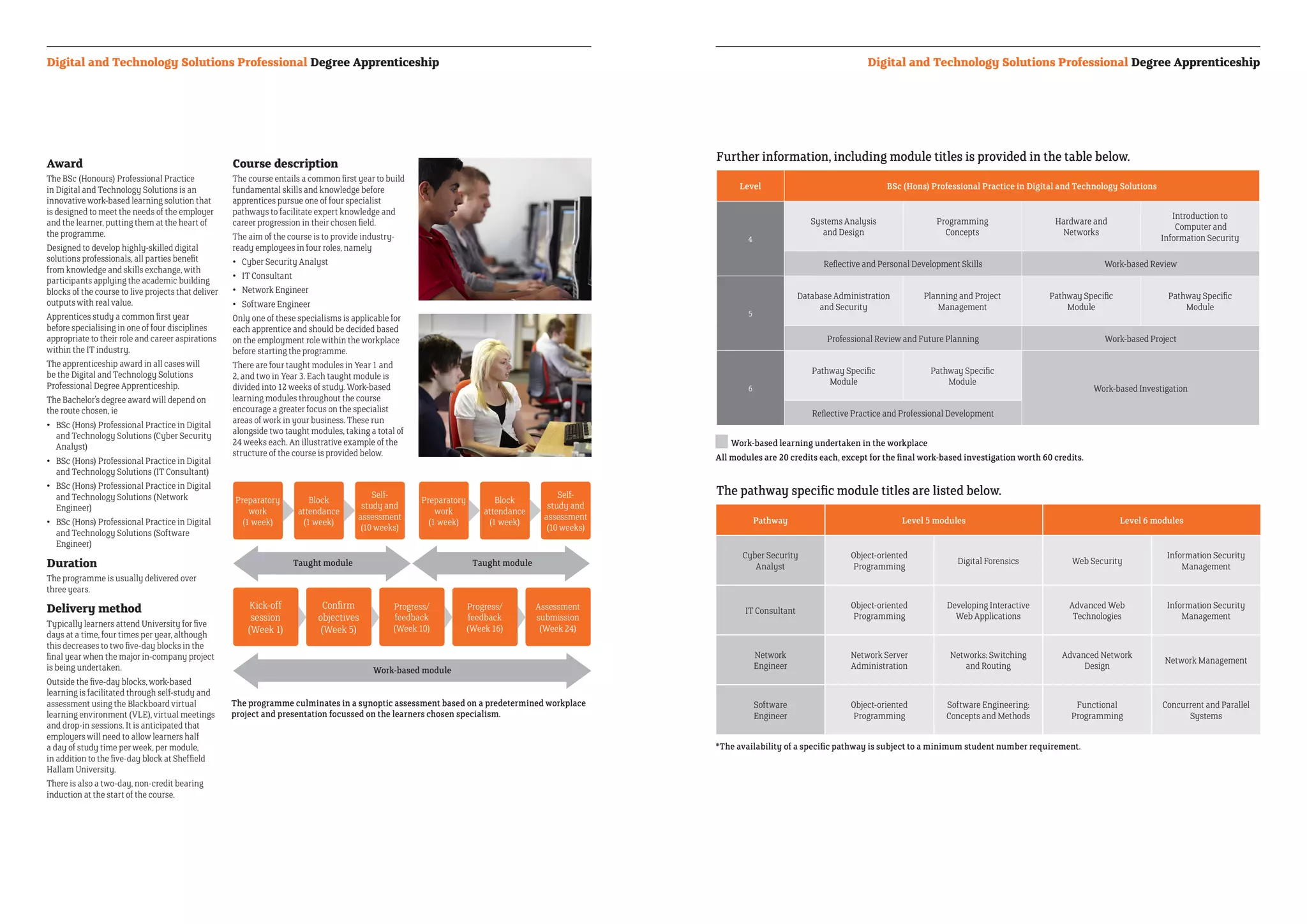The Digital and Technology Solutions Professional Degree Apprenticeship is a unique 3-year program that combines a Bachelor's degree with on-the-job training. Apprentices complete a common first year before specializing in one of four pathways: cyber security analyst, IT consultant, network engineer, or software engineer. The program addresses skills gaps in digital industries by developing degree-holding apprentices with both technical and practical skills tailored to employer needs. Apprentices attend university for blocks of time while gaining most of their experience through work-based learning projects at their organization.



